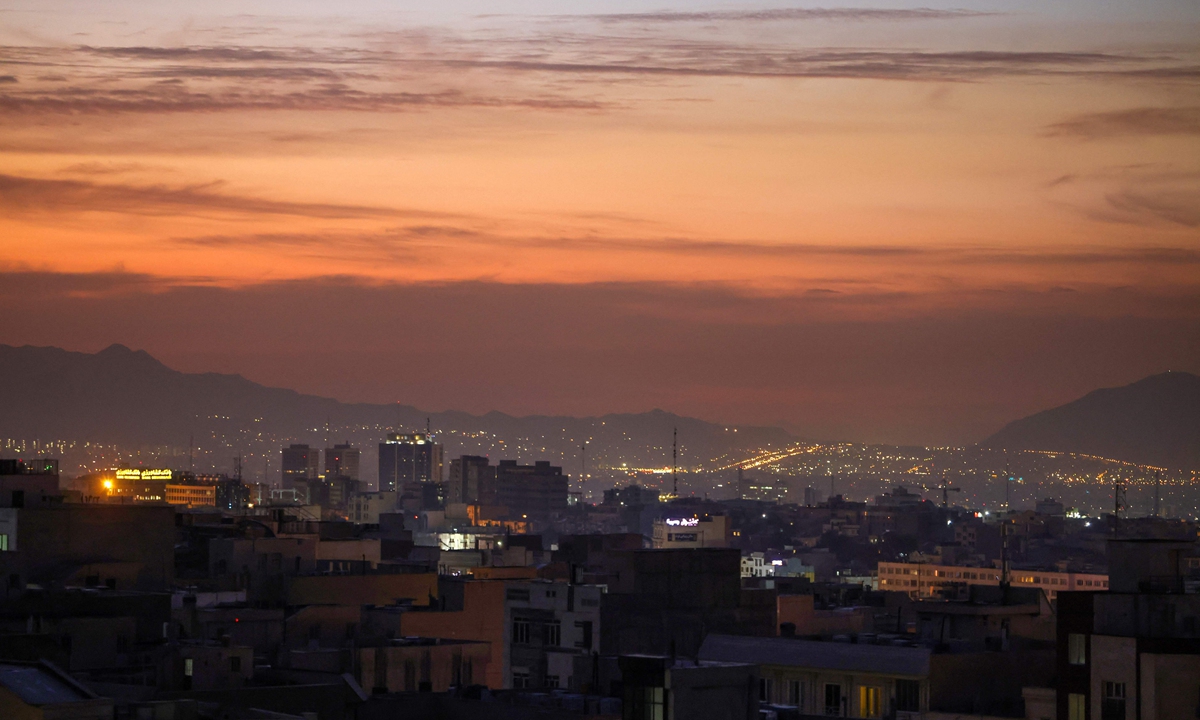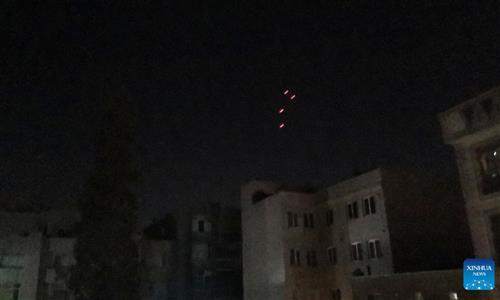
Israel launched attacks on military sites in Iran on early October 26, 2024. Photo:VCG
UN Security Council is set to convene on Monday following Israel's overnight attacks on Iran, as the UN chief called for an immediate halt to all escalatory actions in the Middle East.
Chinese experts said that neither Israel nor Iran seems to be eager to further escalate the situation as for now, and the key to cooling the situation also hinges on the US and Israel, calling on the two sides, as well as countries in the region and the international community, to make joint efforts.
The UN Security Council will convene on Monday following Israel's retaliatory strikes on Iran, CNN reported on Sunday. In a letter to the UN Security Council, Iran's permanent mission to the UN said Israel's actions "constitute a serious violation of the sovereignty and territorial integrity" of Iran and are "a flagrant breach of international law and the United Nations Charter," CNN reported.
UN Secretary-General Antonio Guterres urged halt to escalation after Israeli strikes on Iran. He reiterated his urgent appeal to halt military actions, including in Gaza and Lebanon, and to exert maximum efforts to prevent an all-out regional war, according to a Saturday release by UN News.
Israeli jets completed three waves of strikes before dawn on Saturday against missile factories and other sites near Tehran and in western Iran, in retaliation for Iran's October 1 attack on Israel, Reuters reported.
Iran on Saturday played down Israel's strikes, saying they caused "limited damage," Reuters said.
Reports also emerged that Israel notified Iran ahead of the airstrikes, although the reports were denied by Israeli Prime Minister Benjamin Netanyahu's office, the Times of Israel reported on Saturday.
Wang Jin, an associate professor at the Institute of Middle Eastern Studies at Northwest University in Xi'an, Shaanxi Province, told the Global Times on Sunday that both sides seemed to regard themselves as victors in the conflict, so there might not be another retaliation from Iran, and the two sides might end the conflict from here.
However, there will probably be some small-scale retaliations against Israel from Iran's regional allies, Wang said.
US President Joe Biden also expressed hope on Saturday that the Israeli airstrikes on Iran would mark the end of a period of escalation in the Middle East, CNN reported on Sunday.
The US, while claiming that it prefers not to widen the conflict, is one of the driving forces behind the conflict. It exposes that the US is only trying to avoid the worst-case scenario that could undermine its own interests and policies, Zhu Yongbiao, executive director of the Research Center for the Belt and Road at Lanzhou University, told the Global Times on Sunday.
To a large extent, the current situation was arguably caused by Israel and the US, Zhu said. If Israel and the US are bent on maintaining their current policies, it is not realistic to truly achieve a de-escalation, he said.



